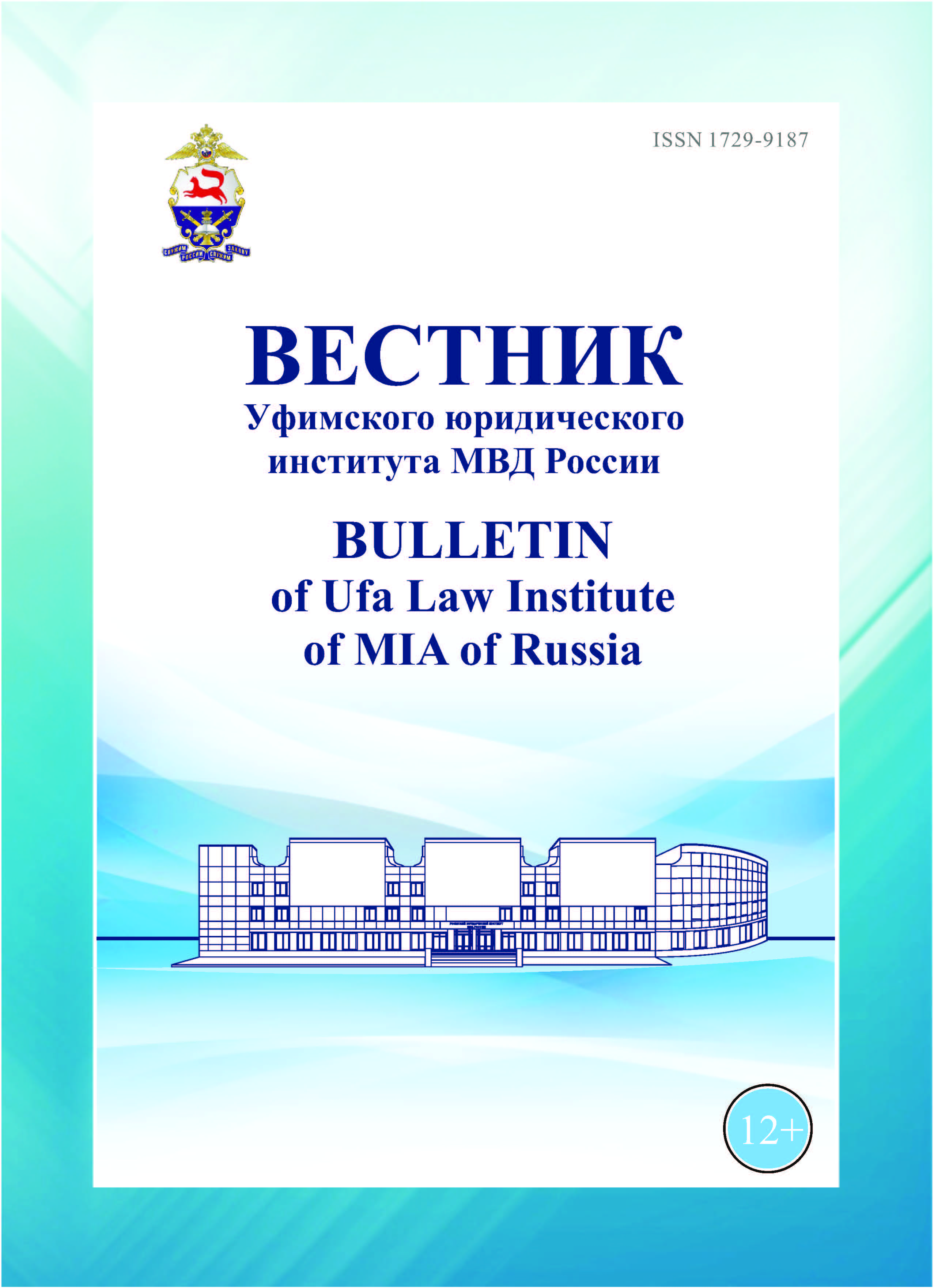from 01.01.2001 until now
Ufa Law Institute of the Russian Interior Ministry (Chair of the foreign and Russian languages, Assistant Professor)
employee from 01.01.2001 to 01.01.2025
Russian Federation
UDC 81
In this article the author examines the importance of studying the value reference component in the semantic structure of a word. The study of the semantics of linguistic units is carried out in conjunction with cognitive structures, linguistic means of actualizing assessment at the lexical and semantic level in linguistic research are considered. The cognitive grounds for differentiating the area of nomination of verb units of similar meaning are analyzed by using of the example of English verbs of the “respect” group. The relevance is due to the fact that dictionary definitions do not have sufficient explanatory potential and do not reflect the peculiarities of the cognitive situation. The author reveals the content of the right-hand actant of the analyzed verbs in the aspect of the concept of “value reference point”. The work uses methods of semantic interpretation, component analysis, content analysis, linguistic experiment, hypothetical-deductive method. Based on the processing of authentic lexicographic and literary sources, Corpus examples’ studies and press materials an empirical research base was compiled.
assessment, implicit meanings, value judgment, value reference point, cognitive semantics, linguocognitive approach
1. Anthropological linguistics: Concepts. Categories: collective monograph / edited by Yu. M. Malinovich. Moscow – Irkutsk: Institute of Linguistics of the Russian Academy of Sciences, Irkutsk State Linguistic University, 2003. 251 p. (In Russ.)
2. Dormidontova O. A. Evaluation category and evaluative categorization from the standpoint of modern linguistics // Almanac of Modern Science and Education Tambov: Gramota, 2009. No. 2 (21): in 3 parts. Part I. P. 47–49. (In Russ.)
3. Wolf E. M. Functional semantics of evaluation. Moscow: Nauka, 1985. 230 p. (In Russ.)
4. Arutyunova N. D. Types of linguistic meanings. Evaluation. Event. Fact. M., 1988. 341 p. (In Russ.)
5. Ivin A. A. Fundamentals of evaluation logic. Moscow: Publishing House of Moscow State University, 1970. 231 p. (In Russ.)
6. Karasik V. I. Evaluative motivation, the status of a person and a vocabulary personality // Philology – Philologica. Krasnodar. 1994. P. 2–7. (In Russ.)
7. Kislitsyna N. N. The concept of linguistic cognitology (cognitive-discursive aspect). Simferopol: LLC “Antiqua”, 2022. 328 p. (In Russ.)
8. Paducheva E. V. Semantic research. The semantics of time and type. The semantics of narrative. Moscow: Languages of Slavic Culture, 2011. 480 p. (In Russ.)
9. Kuzmina V. V. Semantic model of English motivational verbs: dis. ... Candidate of Philology. Ufa, 2012. 179 p. (In Russ.)
10. Ionesyan E. R. Implicit assessment and argumentation // Scientific dialogue. 2020. No. 1. P. 62–77. (In Russ.)
11. Haldeeva E. Y. Cognitive approach in the study of perceptually oriented actions in the English language // Bulletin of Nizhny Novgorod State Linguistic University named after N. A. Dobrolyubov. 2020. No. 51. P. 107–116. (In Russ.)
12. Semenova T. I. The meaning of evaluative opinion in the semantic paradigm of the verb “find” // Crede Experto: transport, society, education, language. 2021. No. 2. P. 51–68. (In Russ.)
13. Tivyaeva I. V. Culturally relevant memory properties in the English phraseology. Current Issues in Philology and Pedagogical Linguistics. 2021. No. 2. P. 250–261. (In Russ.)
14. Balabanova N. V. Frequency characteristics of features of the semantic space of the English social verbal lexicon with the semantic component “Education”. World of Science. Series: Sociology, Philology, Cultural Studies. 2023. No. 14 (3): 25FLSK323. URL: https://sfk-mn.ru/PDF/25FLSK323.pdf. (In Russ.)
15. Grigorik N. N. Assessment as a sociological concept: towards a problem statement // Bulletin of Kemerovo State University. Series: Political, Sociological and Economic sciences. 2021. Vol. 6. No. 3. P. 304–314. (In Russ.)
16. Seliverstova O. N. Contrastive syntactic semantics of the experience of description / ed. by V. N. Yartseva; The USSR Academy of Sciences, Institute of Linguistics. Moscow: Nauka Publ., 1990. 150 p. (In Russ.)
17. Bajburina R. Z. Methodology of experimental research of the English verbal vocabulary // Bulletin of Ufa Law Institute of the Ministry of Internal Affairs of Russia. 2022. No. 3 (97). P. 130–135. (In Russ.)









